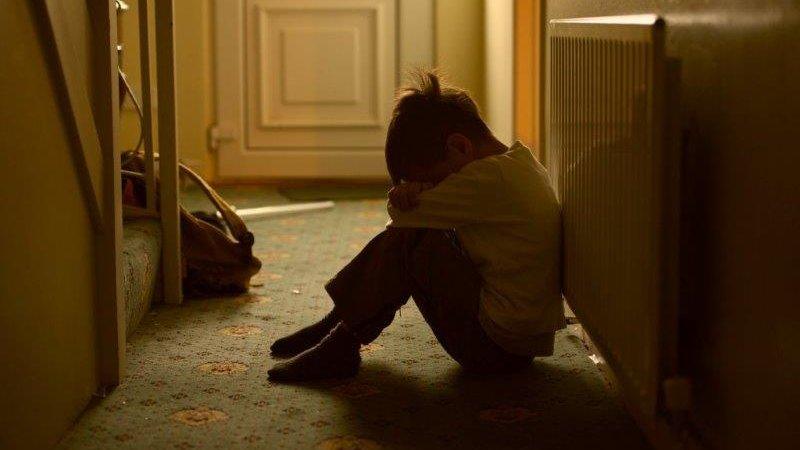Historical abuse compensation: Summer break likely to delay legislation
- Published
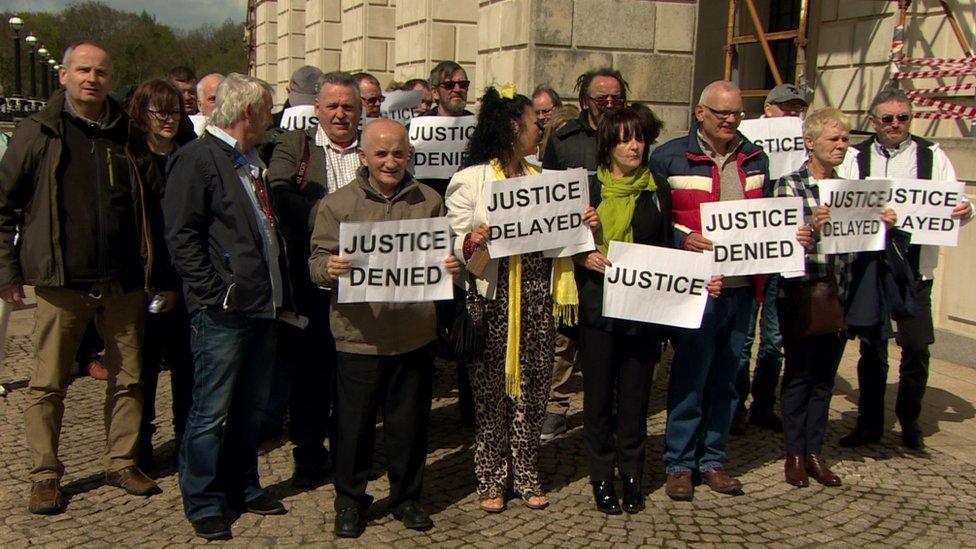
Campaigners have been calling for HIA compensation to be implemented since early 2017
It is "highly unlikely" legislation to compensate victims of historical abuse will go to Parliament before the summer recess, an MP has said.
Payments to victims were recommended by the Historical Institutional Abuse (HIA) Inquiry in 2017 but the process stalled when devolution collapsed.
Conservative MP Simon Hoare, chair of the Northern Ireland Affairs Committee at Westminster, met victims on Friday.
He said he wants the issue "sorted" but it may be months before it gets to MPs.
The new advocate for victims of institutional abuse in Northern Ireland has said he does not expect legislation to facilitate compensation payments to be finalised by September.
Former victims' commissioner Brendan McAllister told BBC News NI's Sunday News programme that survivors may have to wait longer for the process to be completed.
Mr McAllister said he was preparing to press the secretary of state, Northern Ireland Office, Executive Office and political parties to show that "they are really reaching a consensus about the most efficient legislative route".
He added, however, he does not have an estimate of how quickly the legislation can be put through.
'Unlikely before autumn'
Mr Hoare met a number of HIA victims days after chairing a hearing where other survivors called for legislation to be passed through Parliament before it rises for summer recess on 25 July.
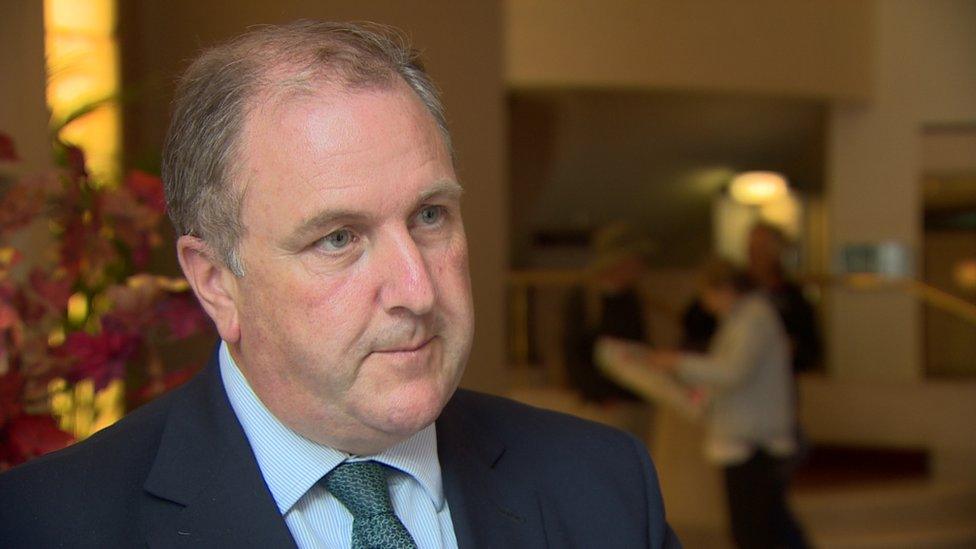
Simon Hoare said he was pushing the government to sort out the legislation
The Northern Ireland Secretary Karen Bradley is due to receive redrafted legislation from Stormont civil servants later this week.
But Mr Hoare told BBC News NI that despite good intent, it was "highly unlikely" that the matter would go to the Commons before autumn.
"We've got a new prime minister and a new government to get into place," he said.
"What I'm pushing, and what I've spoken to the government whip about, is to get in during the first two weeks in September because there isn't a preciousness to which side of the Irish Sea resolves this, is it going to be Westminster or Belfast - it just needs to be sorted.
"We are dealing with vulnerable people who are needing to find the building blocks to deliver closure - and it is slightly cat and mouse to be delaying this any longer than it need to be."
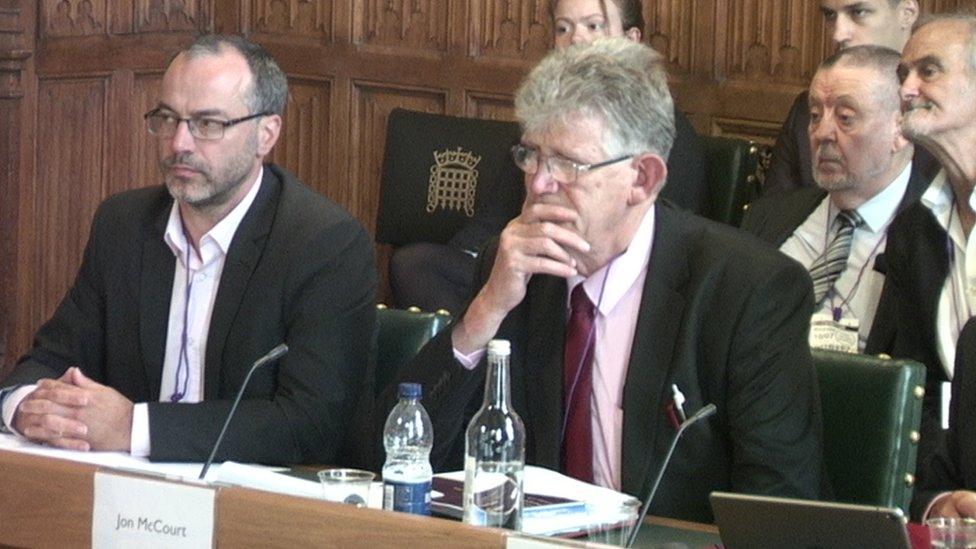
Abuse survivor Jon McCourt was among those who gave evidence to the NI Affairs Committee
Two months ago, Mrs Bradley said she could not take the matter through Parliament.
She later held talks with the Stormont political parties to reach agreement on issues relating to the proposed legislation, which was then redrafted with changes regarding the level of basic payments victims should receive.
Campaigner Margaret McGuckin, from the victims' group Savia, was among those who met Mr Hoare and said she was incredibly disappointed by the prospect of a further delay.
"Every day is like a year to our people, never mind September or October," she told BBC News NI.
She said other pieces of legislation relating to Northern Ireland had been fast-tracked through Parliament, and that the least MPs could do was to push HIA redress through now.
"We will continue to lobby, we're not satisfied it's going to wait until the first two weeks of September. This must be dealt with immediately," she added.
The Northern Ireland Office (NIO) has said it wants the issue to be dealt with as quickly as possible, to provide victims with redress and further support.

What was the HIA inquiry?
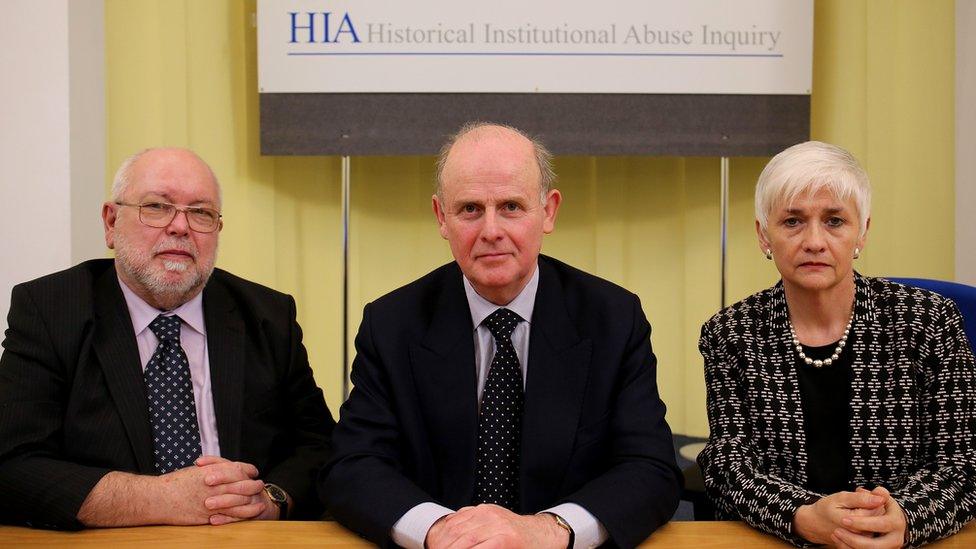
The late Sir Anthony Hart (centre) with his fellow HIA inquiry panel members in 2014
The Historical Institutional Abuse (HIA) Inquiry was set up by Stormont leaders to investigate allegations of abuse in children's residential homes run by religious, charitable and state organisations.
Its remit covered a 73-year period from the foundation of Northern Ireland in 1922 through to 1995.
The inquiry made a number of recommendations, including compensation, a memorial and a public apology to abuse survivors.
Since the inquiry ended two years ago, 30 survivors of historical institutional abuse have died.
It was chaired by retired judge Sir Anthony Hart, who died last week aged 73.

- Published10 July 2019
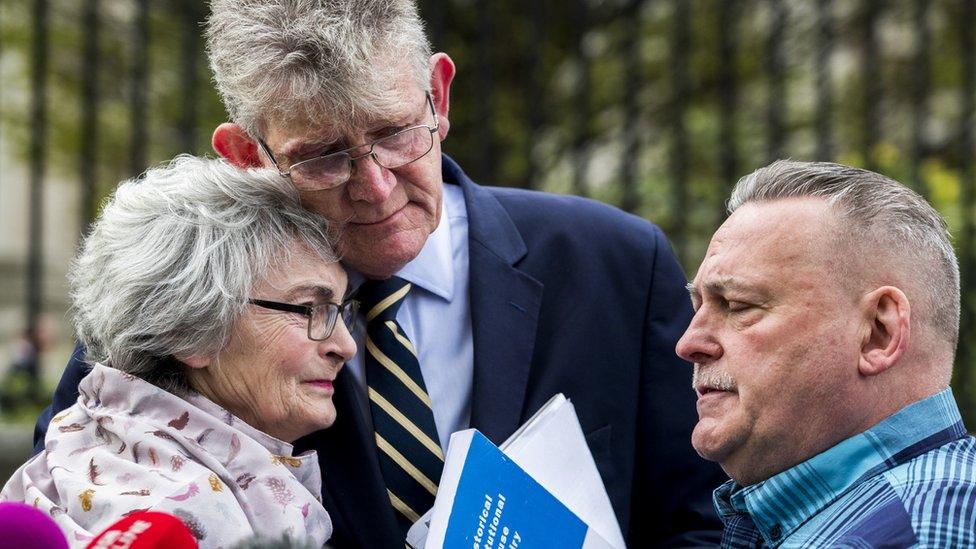
- Published5 June 2019

- Published1 April 2019
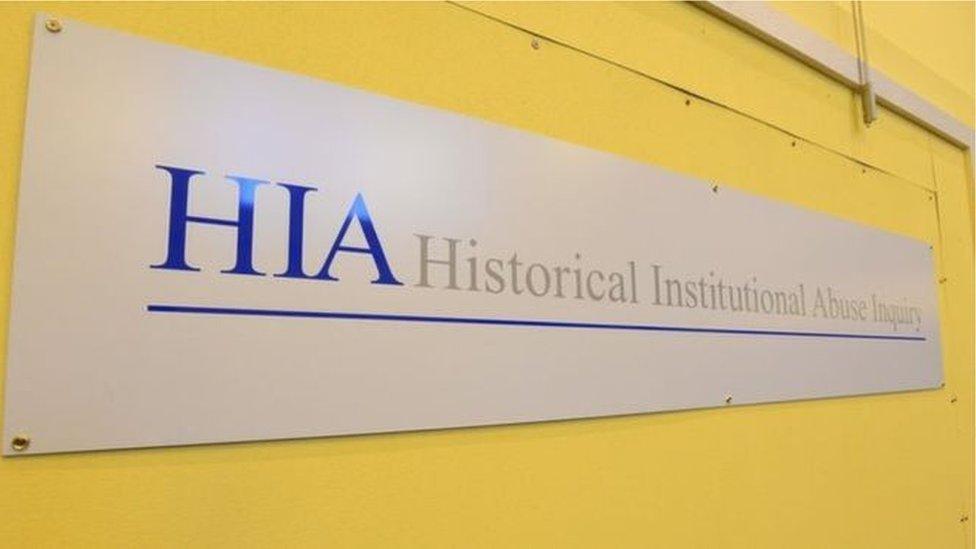
- Published20 January 2017
